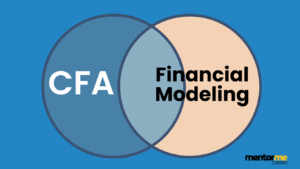Last updated on February 8th, 2024 at 12:21 pm
A certification of CFA is a highly regarded qualification in finance, and obtaining it requires passing the Level 1 exam. The course of study is essential for gaining advanced investment analyst skills and a thorough understanding of portfolio management in the real world.
Furthermore, in this comprehensive guide, we will look into the significance of CFA Level 1 Courses, covering the exam’s significance, important subjects addressed, and some well-liked preparation methods.
Let’s start with Understanding the CFA
CFA stands for Chartered Financial Analyst, and candidates typically apply for certification if they gain knowledge from CFA Level 1 Courses, financial modelling training programs, or have experience in accounting, finance, business, or economics.
After completing the CFA training course and meeting the work experience requirements, candidates are awarded the CFA charter.
Those with CFA charters can work in asset management, investment management, and risk management companies.
In addition, enrolling in portfolio management, economics, financial modelling training programs, and ethics is essential to obtaining the revere CFA title. CFA Level 1, which is widely known for its strict ethical requirements, assesses candidates’ understanding of basic financial principles.
Important Topics Covered in CFA Level 1 Courses
Professional Standards and Ethics in CFA Level 1 Courses:
Standards of Professional Behavior and the CFA Institute Code of Ethics are essential to passing the CFA Level 1 exam. Candidates must show they can apply moral principles in practice.
Finances:
Both micro and macroeconomics teach in CFA level 1 courses, including supply and demand, market structures, and monetary and fiscal policy. Making wise financial decisions requires having a solid understanding of economics.
Financial Modelling and Investment Banking Course:
The financial modelling and investment banking course is essential for the CFA Level 1 exam. In the banking industry, these subjects improve applicants’ abilities in analysis, strategic decision-making, and valuation.
Business Finance:
CFA Level 1 courses cover corporate finance fundamentals such as cost of capital, dividend policy, capital budgeting, and financial risk management. The capacity of candidates to apply these ideas in real-world situations is assess.
Equity investments:
Success in this subject requires knowledge of equity markets, valuation techniques, and the examination of specific equities. Candidates must demonstrate the ability to assess investment opportunities in publicly traded firms.
Financial Modeling Training Programs
Professionals in financial modelling training programs gain the fundamental abilities to build solid financial models. These CFA level 1 courses equip students for success in financial professions by covering a variety of subjects like forecasting, valuation, and risk assessment.
Fixed Earnings:
This section covers interest rate risk, yield measurements, and the value of fixed-income products. To manage portfolios efficiently, one must have a firm understanding of fixed-income ideas.
Derivatives:
This section covers options and other derivative instruments. Candidates’ familiarity with pricing schemes, strategies, and risks along with different financial products is tested.
Alternative Investments
This covers real estate, hedge funds, private equity, and structured products. In today’s diversified financial market, understanding alternative investments is becoming more and more essential.
Wealth planning and portfolio management:
Portfolio management, including asset allocation, portfolio design, and performance evaluation, is the subject of the Level 1 exam’s final session. Taxes and estate planning are two more wealth planning issues covered.
The curriculum of the CFA Institute:
The main resource for exam preparation is the extensive curriculum offered by the CFA Institute. For every subject covered in the Level 1 exam, there are readings and practice questions include.
Suppliers of Third-Party Studies:
A lot of applicants choose to use outside study companies that give practice tests, study guides, and preparatory classes. In the CFA preparation market, companies like Kaplan Schweser, Wiley, and AnalystPrep are well-known.
Platforms for Online Learning:
Online learning environments like Udemy, Coursera, and edX provide global access to CFA Level 1 courses. These platforms frequently offer discussion forums, quizzes, and video courses.
Study Forums and Groups:
Participating in online forums or joining a study group for CFA might offer insightful information and encouragement. Understanding and retention can improve by having discussions about concepts with peers and benefiting from their experiences.
Practice Questions and Mock Examinations:
Success depends on practicing with a lot of practice questions and mock tests. It helps applicants solidify their grasp of important ideas and acquaints them with the format of the exam.
Apps for Interactive Learning:
Convenient mobile apps for CFA Level 1 preparation allow you to study on the go. Additionally, to support learning, these apps frequently incorporate interactive activities, tests, and flashcards.
Tips for Success in the CFA Level 1 Exam
Start Early:
Give yourself enough time to cover all the material and allow for revision by starting your preparation early in advance.
Make a Study Schedule:
Create a thorough study plan with CFA Level 1 courses that allow precise time for every exam topic to guarantee thorough coverage.
Practice Often:
Using practice questions and mock tests to build confidence and pinpoint areas for growth is a good idea.
Use a Variety of Resources:
To ensure that you have a thorough comprehension of the exam topics, combine other study materials with the official CFA Institute program or financial modelling training programs.
Seek CFA Level 1 Courses Provider
Look for reliable CFA Level 1 courses providers that give thorough study guides, mock tests, and efficient learning tools to improve your exam readiness.
Final Thoughts
It’s satisfying and difficult to start the path to becoming a Chartered Financial Analyst. This journey begins with the CFA Level 1 exam, which assesses applicants on a wide range of fundamental financial principles. Whether studying with resources from the CFA Institute or CFA level 1 courses, a methodical and thorough approach to preparation is essential. So that, by investing time, energy, and resources into the process, aspiring CFA applicants can set themselves up for success on the Level 1 exam and open doors for future achievements in their finance careers.
Frequently Asked Questions
How long does it take to obtain a CFA?
It will take six to nine months to prepare for each level of the CFA exam. The additional four thousand working hours must be included. It takes roughly three to five years to become a designated CFA charter holder.
Is Articleship Required to Become a CFA?
No, to become a CFA, an articleship is not required. CA The training required by ICAI is called articleship, and CFAs are not eligible for it.




